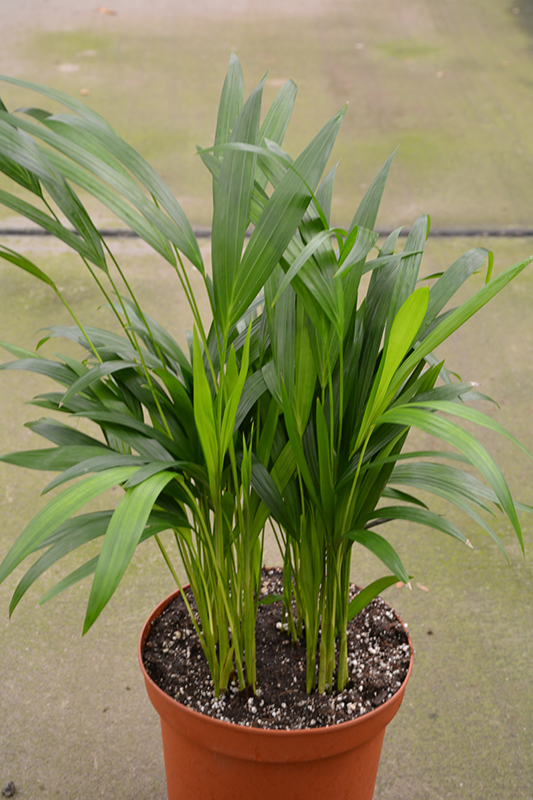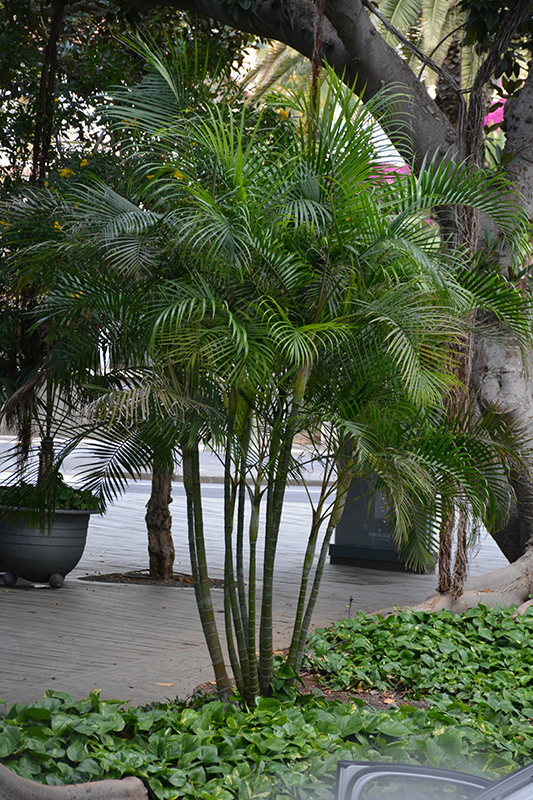12 feet
8 feet


Butterfly Palm, Golden Cane Palm, Bamboo Palm
Areca Palm's attractive large glossy narrow pinnately compound leaves remain forest green in color with pointy gold spines throughout the year on a plant with an upright spreading habit of growth.
This is a multi-stemmed evergreen houseplant with an upright spreading habit of growth. Its relatively fine texture sets it apart from other indoor plants with less refined foliage. This plant should not require much pruning, except when necessary to keep it looking its best.
When grown indoors, Areca Palm can be expected to grow to be about 12 feet tall at maturity, with a spread of 8 feet. It grows at a slow rate, and under ideal conditions can be expected to live for approximately 10 years. This houseplant will do well in a location that gets either direct or indirect sunlight, although it will usually require a more brightly-lit environment than what artificial indoor lighting alone can provide. It does best in average to evenly moist soil, but will not tolerate standing water. The surface of the soil shouldn't be allowed to dry out completely, and so you should expect to water this plant once and possibly even twice each week. Be aware that your particular watering schedule may vary depending on its location in the room, the pot size, plant size and other conditions; if in doubt, ask one of our experts in the store for advice. It is not particular as to soil pH, but grows best in rich soil. Contact the store for specific recommendations on pre-mixed potting soil for this plant.
There are many factors that will affect the ultimate height, spread and overall performance of a plant when grown indoors; among them, the size of the pot it's growing in, the amount of light it receives, watering frequency, the pruning regimen and repotting schedule. Use the information described here as a guideline only; individual performance can and will vary. Please contact the store to speak with one of our experts if you are interested in further details concerning recommendations on pot size, watering, pruning, repotting, etc.
-- THIS IS A HOUSEPLANT AND IS NOT MEANT TO SURVIVE THE WINTER OUTDOORS IN OUR CLIMATE --

